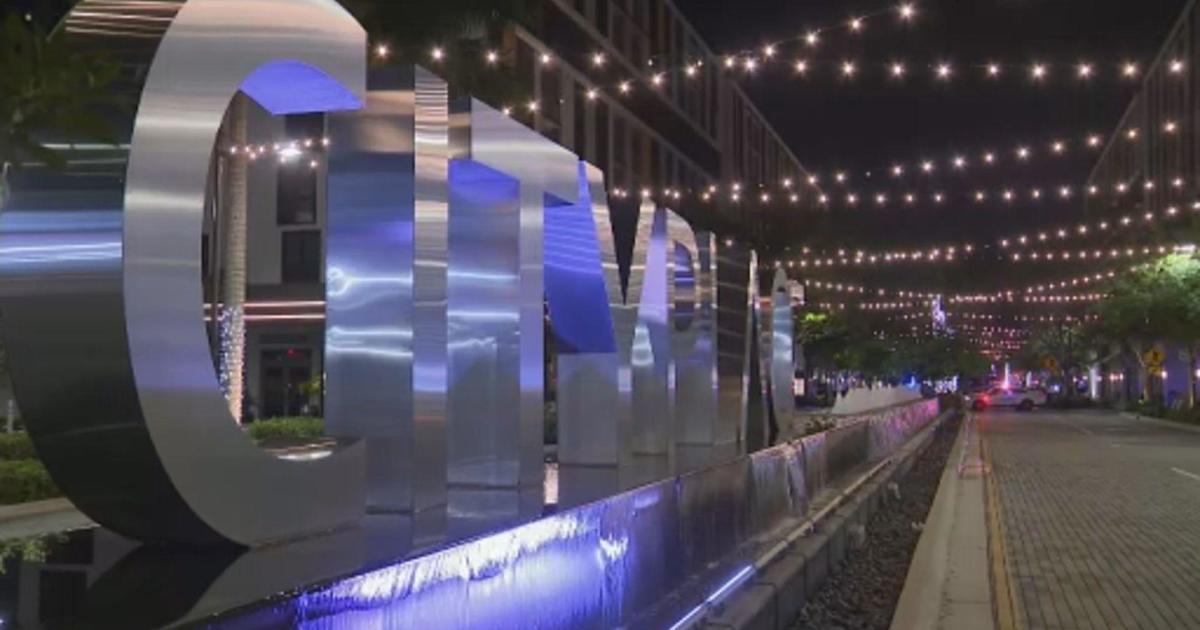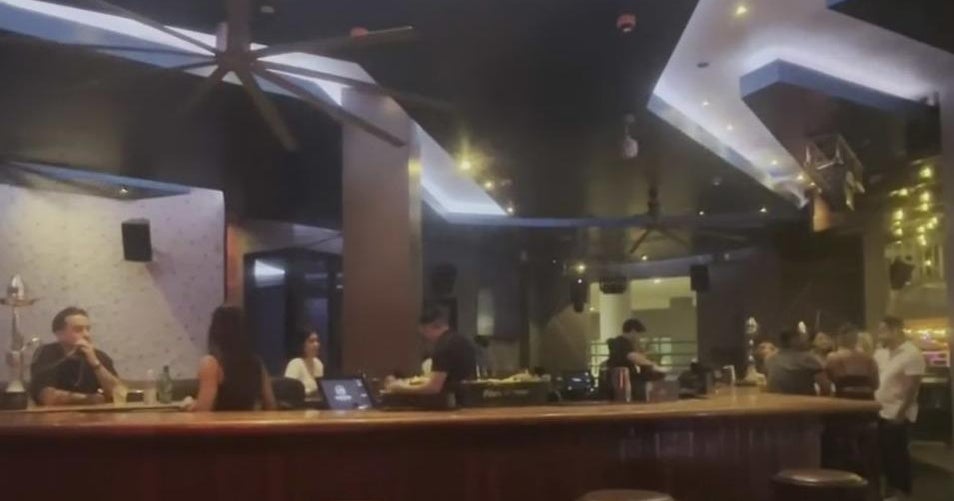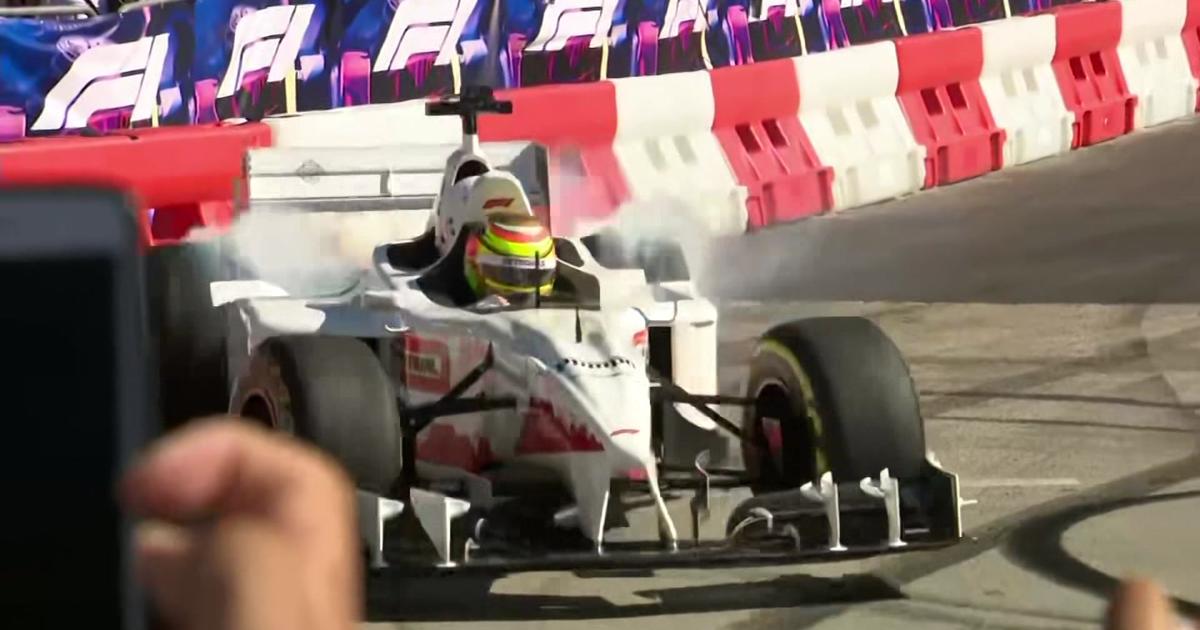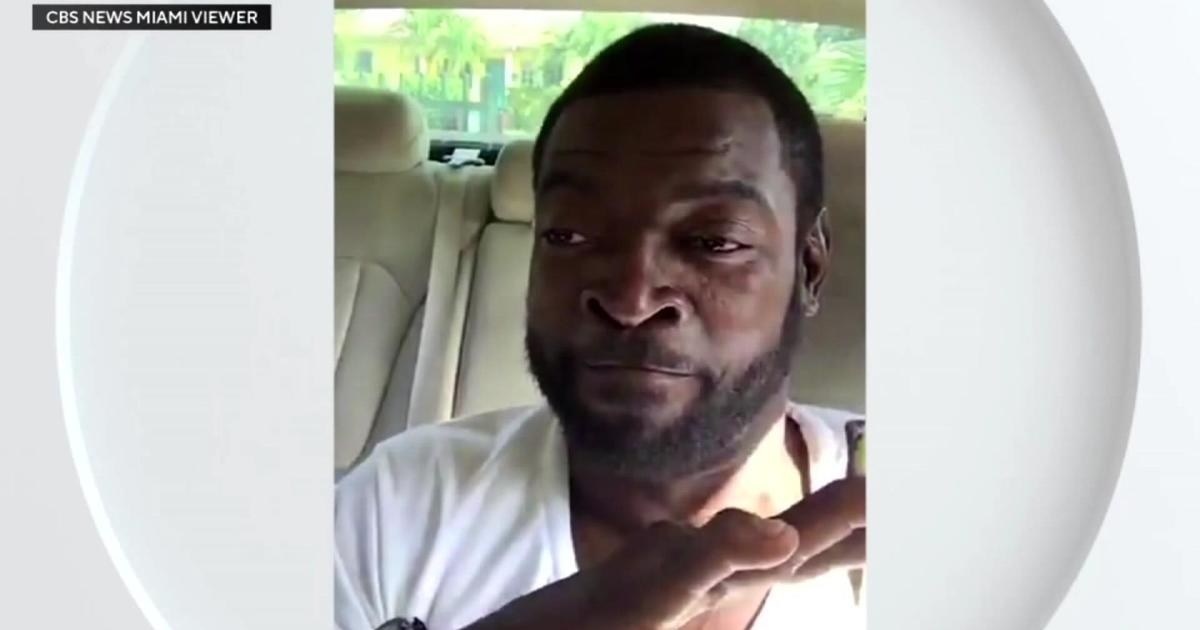Race Matters, Part 1: "Tired Of Them Abusing Their Authority"
Follow CBSMIAMI.COM: Facebook | Twitter
MIAMI (CBSMiami) -- On August 27th, a group of plain clothes Miami-Dade police officers pulled onto a dead-end street in South Dade and arrested three young black men after finding a single marijuana cigarette on the ground near where the trio was standing.
Two of the men were released on the spot after being given notices to appear in court. The third person, however, was placed in handcuffs and loaded into one of the unmarked cars.
Why did the officers take 21-year-old Tannie Burke? According to Burke, the officers were angry because Burke's stepfather, Marvin Armstrong, was videotaping the arrest as well as berating the officers and accusing them of racial profiling.
Burke claims instead of taking him to jail or to the South District police station, the officers took Burke for a ride, during which they repeatedly complained about his stepfather's actions.
Click here to watch Jim DeFede's report.
"They said, `your step father got a lot of mouth. You know we don't like that,'" Burke recalled.
After twenty minutes, Burke said they dropped him off on the edge of some darkened farmland miles from his house.
"They put me off somewhere in Goulds," Burke recounted. "There were no street lights and no houses. It was just dark."
Burke's allegations would be troubling by themselves. They become startling, however when one detail is added: Burke is legally blind.
It would take Tannie Burke the better part of an hour to find his way home with help from a stranger. The incident is now under investigation by Internal Affairs. Nevertheless, CBS4 News began to hear other stories regarding this same group of plain clothes police officers who comprise what is known as a Crime Suppression Team (CST).
"These law enforcement ain't got no compassion, no consideration, and definitely none toward a blind man," said Burke's stepfather, Marvin Armstrong. "They just do what they do because they think they can get away with it."
A few weeks after speaking to CBS4, Armstrong was arrested by the same Crime Suppression Team. In that case, Armstrong videotaped the CST as they broke up a dice game. The officers were annoyed to see him again, Armstrong said, and so they arrested him for interfering with their crime scene. However cell phone video taken by others in the area show there were lots of people standing around and the "crime scene" was not blocked off with yellow police tape.
Armstrong claims after they arrested him the officers grabbed his camera and deleted his video. They then placed him in handcuffs and took him to jail. That incident as well is also now under investigation by Internal Affairs.
"Tired of them abusing their authority, tired because the color of your skin makes you less of a human being," Armstrong said. "I'm tired of it."
To try to understand precisely how the Crime Suppression Team in South Dade works, CBS4 News conducted a five month investigation. We reviewed every arrest members of the team made in 2014 and working with a team of journalism students at the University of Miami, created a database detailing every case including their outcomes.
What we found was a unit that racked up hundreds of arrests – mostly of young black men – for petty offenses.
Although blacks comprise just 27 percent of population in the South District, 67 percent of the people they arrested were black.
Ninety-six percent of their cases were for non-violent offenses.
Seventy-six percent were for misdemeanors.
Sixty-five percent were for misdemeanor possession of marijuana. And of the 245 individuals they arrested for marijuana - only two ended up being convicted.
Overall, the Crime Suppression Team in the South District had a conviction rate of just eleven percent.
Nevertheless, despite the vast majority of the cases being dropped or dismissed, the mere fact of being arrested can make it harder to find a job, housing, or even obtain a student loan.
"We're talking about police procedures that really victimize communities of color," said State Senator Dwight Bullard, who represents the southern portion of Miami-Dade County. "I take serious offense and have a real problem with that."
By focusing so much attention on petty, minor offenses, the police create a rift between themselves and the very communities they claim to serve, Bullard said. Rather than a liberating force that frees a neighborhood, the police can instead become an occupying army that treats everyone they encounter as a suspect.
"What we want to know is that the police are actually fighting real crime," he said. "Going in and harassing folks, or harassing folks for petty crimes like smoking marijuana outside their home or outside their residence doesn't seem like a good use of taxpayer dollars."
Police officials counter they are not targeting blacks, they are simply going into neighborhoods most affected by crime, and those happen to be the economically destitute areas where blacks live.
They also argue the statistics don't fully show all of the work done by the Crime Suppression Team. The CST can often assist other units. Between April 2014 and March 2015, officials said CST officers were involved in the apprehension of six burglars and twelve robbery suspects. They also seized more than 800 hundred pounds of marijuana, a kilo of cocaine, and took 35 guns off the street.
The way in which police conduct themselves while working in minority communities is a growing concern across the country. The tumult recently seen in places like Ferguson, Staten Island, and Baltimore can have their roots in a long list of social factors - poverty, unemployment, a lack of clean affordable housing, a breakdown of families - but they almost always become ignited through encounters with the police, especially in neighborhoods where they feel the police treat them with a lack of respect.
The fear is that when the police target neighborhoods like Goulds and Perrine, no matter their motivation, they treat the people who live there differently than they would if they were assigned to more affluent neighborhoods like Cutler Bay and Pinecrest.
Robert Brooks, the senior pastor for the St. Peters Missionary Baptist Church in West Perrine, says he believes that simply being a black man in Perrine automatically makes you guilty of something to the police.
"Personally, as I'm thinking about it, I can name at least four cases that stand out," he said, recalling instances when he had been needlessly detained by the police.
"Stopped and mistreated, or by my standards mistreated," he said. "I wasn't roughed up, not physically, but disrespected, spoken to as if I was already a suspect."
He recalls one instance when a group of plainclothes officers jumped out at him as he was riding his bicycle, forced him to lie face down on the ground while they handcuffed him. They then put him on his knees while they ran his driver's license.
"I remember particularly while I was on my knees, with the cuffs behind my back, the bus rolled by, and I thought about how embarrassing it would be if members of my congregation saw me wondering if I had committed a crime," he said.
He said he let them know he was a pastor but it made little difference to them.
"I didn't tell them that for them to give me a break or anything," he said. "I was letting them know I didn't fit their description and my behavior didn't warrant the way I was being treated."
Despite his various encounters, he continues to work with the police and credits the commander in the South District, Major Andrianne Byrd, for improving relations between the police and the community. Nevertheless, he said the actions of the Crime Suppression Team and other units like them are undermining that work.
"There is a bad seed that is creating a wedge between the community and the police," he said.
J.L Demps is the unofficial mayor of Goulds and president of the Greater Goulds Optimist Club where he coaches baseball and football. He also believes that the police and the community in South Dade are, for the most part, forging a bond - but he also says it gets easily undermined when special units take an overly aggressive approach.
"It creates a mistrust," he said. "No matter what I say, if you were pulled over, if you were held for no reason for a number of minutes, hours, you know you are going to have a hard time believing what I say."
What truly upsets Demps is that there are officers who think they can get away mistreating and abusing people in his community because they are poor and black.
"I can see, if I was that type of officer, and I worked in this particular community, there are folks that I can pull over every day, or stop and approach, and I can make those types of arrest, I can mistreat them because they are not going to have an attorney, they are not going to go downtown and file a complaint. They are not going to do it."
Pastor Brooks said for him, the saddest part, is that rather than making the community safer through these aggressive tactics, it actually has the opposite effect.
"Recently I was out on a mission," he said. "We were going door to door, trying to get people some social services, and one of the questions I ask was, `Have you witnessed any crime?' There was a young lady, she witnessed a murder a couple of months ago, and I asked her would she speak to the police, and she outright refused.
"And she said she had no respect for the police, outright. `They don't care anything about us, they are just acting like this because you're here.' There was a lot of law enforcement out, and she said, `When you guys aren't around they treat us like animals.'"
For the major who oversees the South District, the issue of targeting blacks, is not an abstract debate for her.
"Because I'm African-American I do have that experience from both sides of the street," said Miami Dade Police Major Andrianne Byrd. "When I put this [police] shirt on and I cover up all of the important parts, I'm still African-American. When I take this shirt off, I still have those same concerns for my own son and my own grandson, whether or not they are going to go out, whether or not they're going to be profiled. I'm not saying to you it doesn't happen. I'm not saying it doesn't happen because as an African-American mother I believe it does. What I'm saying to you is I don't think my CST was actively engaging in that type of behavior."
(Coming up in Part 2: Major Byrd directly addresses the issues surrounding her Crime Suppression Team and former Miami Police Chief Manny Orosa explains why he disbanded his Crime Suppression Teams when he took over in the City of Miami.)



